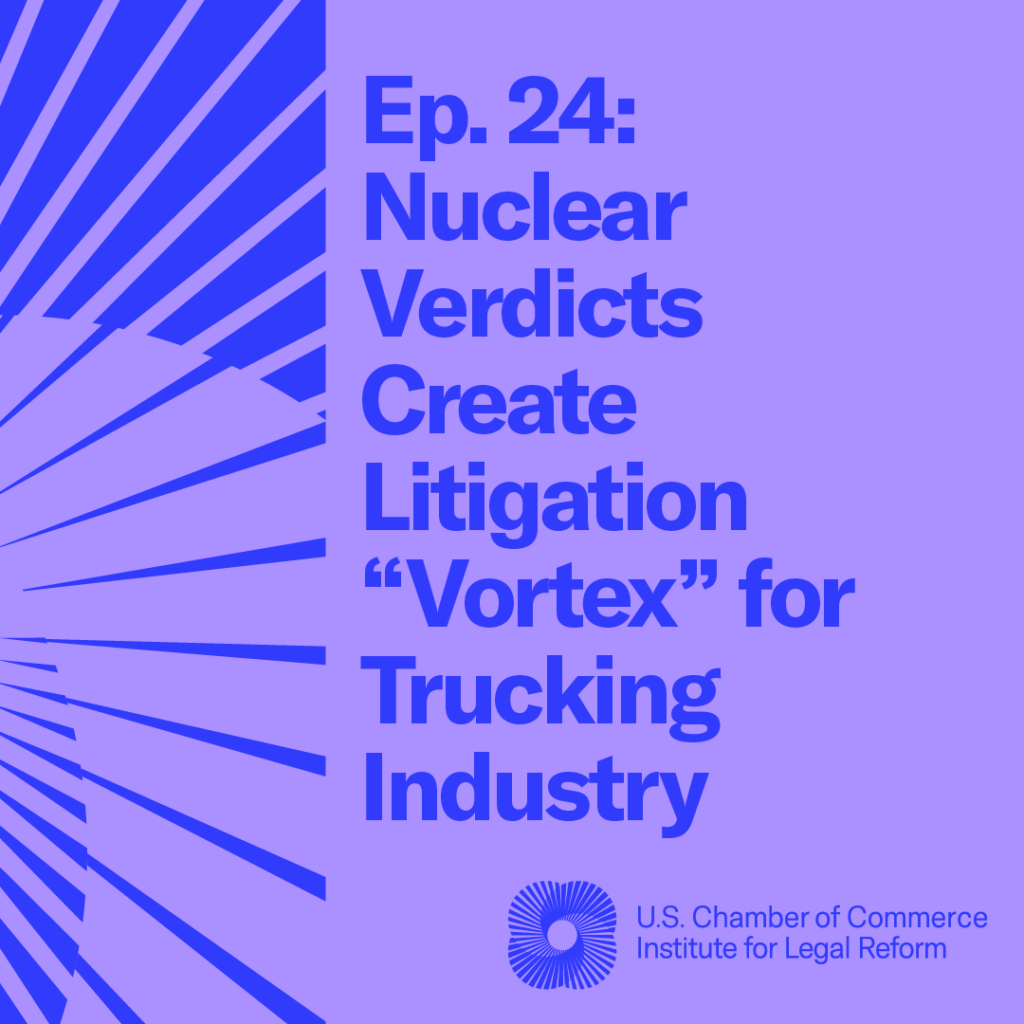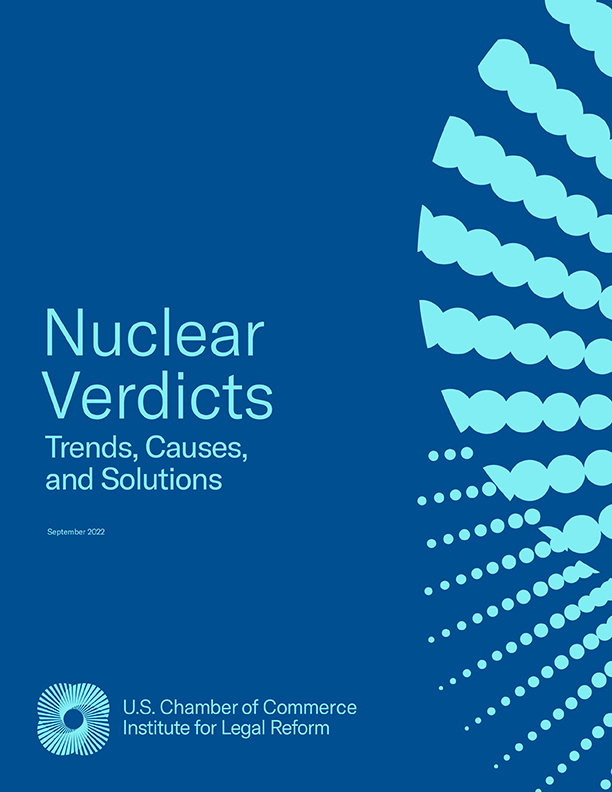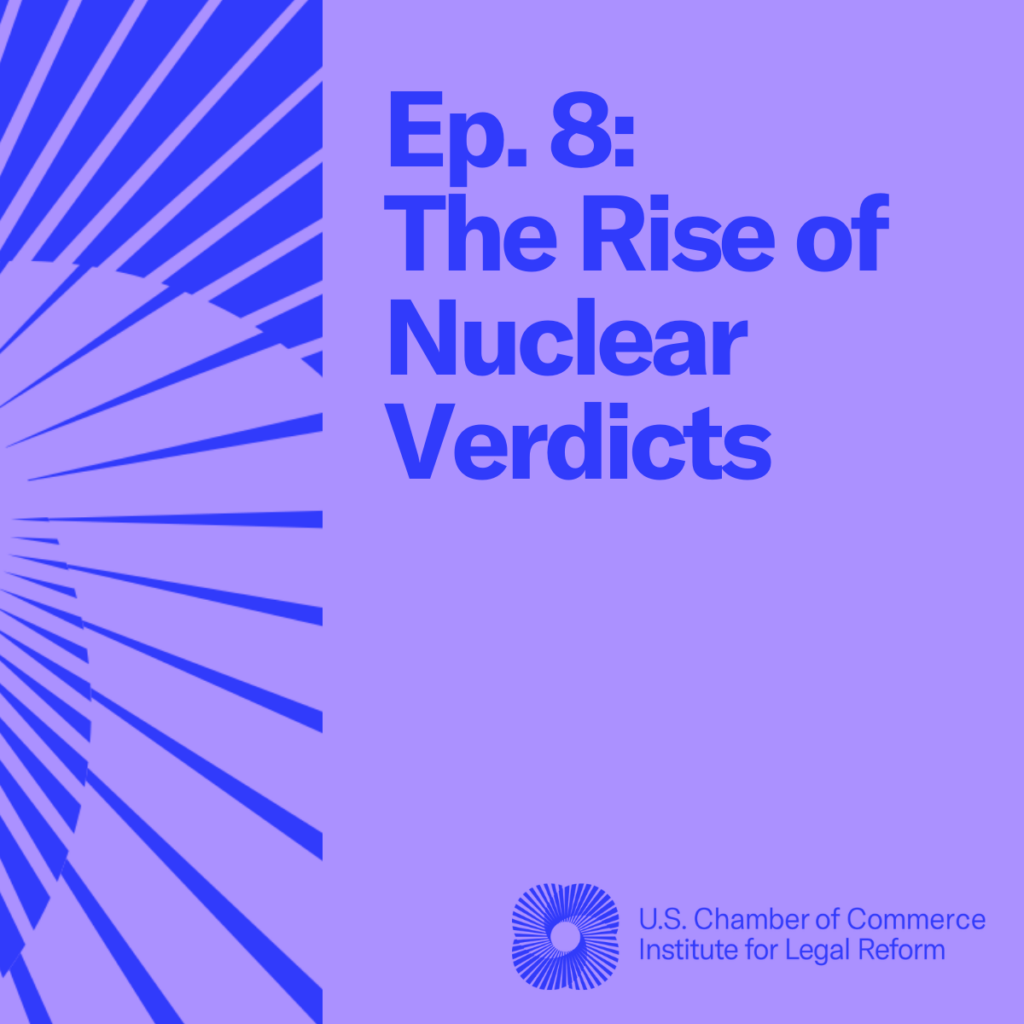The trucking industry is the backbone of America’s supply chain and economy. We depend on truckers to deliver important items – like groceries, diapers, and even the clothes we buy – to stores safely and on time. But trucking companies face a rising tide of lawsuits, which is causing real harm to this vital industry.
ILR’s recent study Roadblock: The Trucking Litigation Problem and How to Fix It outlines that part of the problem is the increase in nuclear verdicts, which are jury awards worth $10 million or more. The study also notes that among verdicts worth $1 million or more against trucking firms, the average verdict increased by 867 percent between 2010 and 2018, even though trucking accidents per mile traveled decreased from 2000 to 2020. In other words, trucking is getting safer, but verdicts are getting bigger. It’s not a coincidence that some of the worst states to operate a truck because of the litigation risk—like California, Georgia, and Pennsylvania—are the same states in previous ILR research with the highest number of nuclear verdicts per capita.
The research explores a variety of reasons for the growing litigation trend: medical referral networks and inflated billing practices, so-called “reptile” courtroom tactics by plaintiffs’ lawyers, a strategy to widen the circle of defendants, and an ambiguous standard of care. As Nathan Morris, ILR’s senior vice president of legal reform advocacy, told Insurance Business magazine, “[A big] factor that’s causing the increase in verdict sizes is the tactics. There is an issue with how medical damages are being presented to juries and with how trial lawyers are arguing their cases to juries to trigger safety responses, called ‘reptile’ theory.”
Excessive lawsuits against trucking companies have a far-reaching impact that goes beyond the courtroom. For example, more lawsuits mean higher insurance premiums, which lead to higher shipping prices for consumers and retailers, or worse, no options for coverage. Since trucking companies can’t operate without insurance coverage, they are forced to close, harming the U.S. supply chain and economy. And it’s not just big carriers affected. According to the study, 92 percent of carriers have ten or fewer trucks, meaning small businesses bear the effects of too much litigation.
Fortunately, there are ways to help change the litigation culture. The paper outlines several solutions state legislators and courts can pursue to clamp down on rising verdicts, such as requiring transparency in claiming medical damages, preventing plaintiffs’ lawyers from improperly inflaming jurors if the defendant company has already said it would be responsible for the driver’s negligence (if any), and creating reasonable caps on non-economic damages, to name a few.
It must be acknowledged that trucking accidents, when they occur, can have severe consequences for those involved. But the current litigation trajectory is unsustainable for the American economy and the trucking industry. Policymakers and judges must take action to restore balance and fairness in trucking lawsuits.



